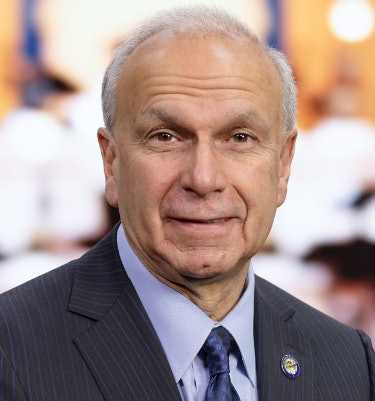An Ohio higher education bill currently making its way through the state legislature could prohibit Ohio higher education instructors from teaching climate science without also including false or misleading counterpoints, Ohio Capital Journal reported. Sen. Jerry C. Cirino
Sen. Jerry C. Cirino
SB 83, the Higher Education Enhancement Act, sponsored by State Senator Jerry Cirino aims to label classroom speech on certain topics – including climate change, abortion, immigration, and diversity, equity, and inclusion (DEI) – as controversial and regulate the teaching of them accordingly.
Public college and university instructors will have to “not seek to inculcate any social, political, or religious point of view.” And schools getting state funding would be barred from requiring DEI training and instead have to commit to “intellectual diversity,” including “divergent and opposing perspectives on an extensive range of public policy issues.”
Cirino said he “didn’t actually consult with climate people.”
“What I think is controversial is different views that exist out there about the extent of the climate change and the solutions to try to alter climate change,” Cirino said.
But often on the topic of climate change, “both sides” arguments contain false or misleading propaganda from the fossil fuel industry. To label climate change as controversial is incorrect, given that the science clear, said Dr. Cyrus Taylor, a physics professor at Case Western Reserve University focusing on climate science.
Systemic racial and environmental injustice resulting in more pollution burdens, energy burdens, and health problems for historically underrepresented groups should be discussed, said Dion Mensah, energy justice fellow at the Ohio Environmental Council.
“By ignoring those histories, we’re really setting ourselves up for building social policy that isn’t informed by truth, by the legacy of racism in this country,” Mensah said.
Taylor said: “The equity issues on climate change are really, really important, because there’s no doubt that it’s going to hurt different communities differently.”















